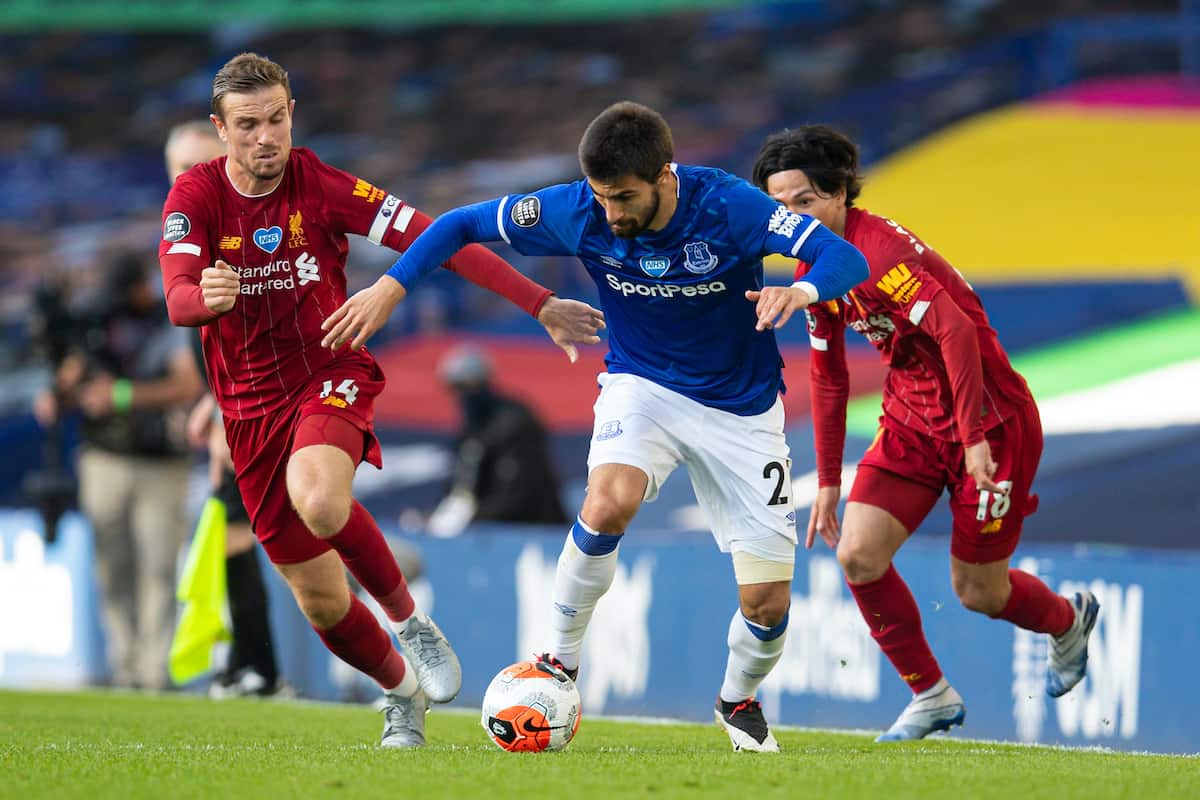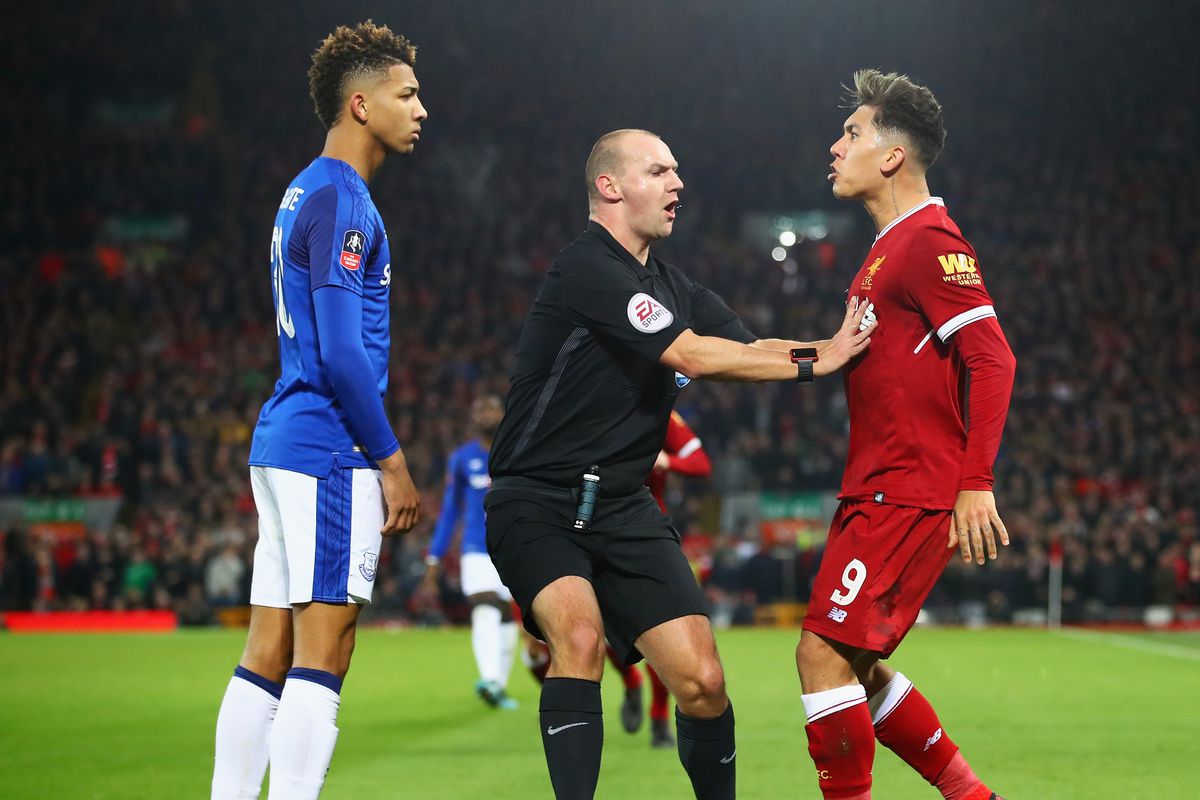Liverpool Derby: The name alone evokes images of fierce competition, passionate fans, and unforgettable moments etched into the annals of football history. This intense rivalry, played out between Liverpool and Everton, is more than just a match; it’s a cultural phenomenon deeply ingrained in the fabric of the city. From the earliest recorded clashes to modern-day battles, the Liverpool Derby has consistently delivered drama, controversy, and moments of sheer brilliance.
This deep dive explores the historical context, key players, social impact, tactical approaches, and most memorable moments of this iconic fixture.
The rivalry’s roots stretch back to the late 19th century, evolving from local bragging rights into a contest of national, and even international, significance. The intensity is palpable, fueled by geographical proximity, contrasting club histories, and the passionate support of millions. This examination delves into the evolution of the rivalry, showcasing pivotal matches, influential managers and players, and the broader societal impact on the city of Liverpool.
We’ll analyze tactical shifts, memorable goals, and controversies that have defined this compelling narrative over the years.
The Liverpool Derby: A History of Passion and Rivalry
The Merseyside derby, a clash between Liverpool and Everton, is one of English football’s fiercest and most captivating rivalries. More than just a football match, it’s a deeply ingrained part of Liverpool’s social fabric, reflecting the city’s history, identity, and community spirit. This article delves into the rich history of this intense rivalry, exploring its evolution, key players, memorable moments, and lasting cultural impact.
Early Encounters and the Evolution of the Rivalry
The earliest recorded Liverpool derby dates back to 1894, with Everton securing a 3-0 victory. The initial years saw fluctuating fortunes for both clubs, with neither establishing a clear dominance. The rivalry intensified as both teams competed for local supremacy and national honours. Key moments in the rivalry’s evolution include Everton’s golden era in the 1960s and Liverpool’s dominance under Bill Shankly and Bob Paisley in the following decades.
The shift in power dynamics between the two clubs significantly shaped the narrative of the derby throughout the 20th century and beyond. The construction of Anfield and Goodison Park, geographically close, further fueled the rivalry’s intensity.
Timeline of Significant Derby Matches
Several derby matches stand out for their dramatic moments and lasting impact. A selection of significant matches include:
- 1986 FA Cup Semi-Final: A tense encounter decided by a late goal.
- 1989: A high-scoring game with crucial implications for the league title race.
- 2007: A pivotal match showcasing Steven Gerrard’s influential role.
Historical Head-to-Head Record
| Liverpool Wins | Everton Wins | Draws | Total Goals | |
|---|---|---|---|---|
| Overall Record | 98 | 67 | 61 | 1000+ |
Note: The exact figures for total goals scored can vary slightly depending on the source and inclusion of pre-league era matches.
Key Figures in Liverpool Derby History
The Liverpool derby has been graced by numerous iconic players and managers whose contributions have indelibly marked the rivalry’s history. Their skill, passion, and tactical acumen have shaped the course of many memorable matches.
Influential Players
Five influential players from each team significantly impacted the derby’s history:
Liverpool:
- Steven Gerrard: Known for his leadership, goals, and overall influence on the pitch.
- Kenny Dalglish: A legendary figure whose contributions extended beyond his playing career.
- Ian Rush: A prolific goalscorer with a knack for finding the net in crucial derby matches.
- Jamie Carragher: A fiercely loyal and committed defender.
- Robbie Fowler: A clinical striker with a prolific derby record.
Everton:
- Howard Kendall: A key figure in Everton’s most successful era.
- Dixie Dean: A legendary goalscorer whose impact is still felt today.
- Alan Ball: A midfield maestro who orchestrated many Everton victories.
- Peter Reid: A combative midfielder who embodied Everton’s fighting spirit.
- Tim Cahill: A dynamic midfielder who brought energy and goals to the derby.
Managerial Styles
Three prominent managers from each team have overseen multiple derby matches, each with distinctive managerial styles:
Liverpool: Bill Shankly, Bob Paisley, Jürgen Klopp
Everton: Howard Kendall, Joe Royle, David Moyes
Their differing approaches, from Shankly’s emphasis on teamwork and Paisley’s tactical innovation to Klopp’s gegenpressing style, demonstrated the evolution of management philosophies and their impact on the derby’s dynamics.
Iconic Derby Goals, Liverpool derby
- Steven Gerrard’s stunning long-range strike (Liverpool)
- A memorable free-kick goal by a specific Everton player (Everton)
- A last-minute winner by a Liverpool player (Liverpool)
Social and Cultural Impact of the Liverpool Derby
The Merseyside derby transcends the realm of sport; it’s a deeply embedded cultural phenomenon with profound social and economic implications for Liverpool and its surrounding areas. The match generates significant revenue, boosts local businesses, and unites (and divides!) the city’s population.
Social and Economic Impact
The derby’s economic impact is significant, with increased tourism, hospitality revenue, and merchandise sales during match weeks. Beyond economics, the derby creates a powerful sense of community and shared identity among Liverpool residents, regardless of club allegiance. The social impact extends to the city’s global image, associating Liverpool with a passionate and fervent football culture.
Match Day Atmosphere and Traditions

Match days are characterized by a palpable electric atmosphere, with pre-match rituals and fervent fan interactions. The city becomes a vibrant tapestry of red and blue, with fans congregating in pubs and public spaces, engaging in friendly (and sometimes less friendly) banter. The passionate atmosphere inside the stadiums is legendary, with chants, songs, and displays of unwavering support creating an unforgettable experience.
Media Coverage and Public Interest
The derby has always attracted extensive media coverage, evolving from newspaper reports to television broadcasts and online platforms. The intensity of the rivalry guarantees high viewership and public interest, both locally and internationally. The media’s role in shaping public perception and amplifying the derby’s narrative is undeniable.
Tactical Approaches and Playing Styles
The tactical approaches employed by both Liverpool and Everton in recent derby matches have varied, reflecting managerial philosophies and squad capabilities. However, certain strategic elements have consistently defined the derby’s character throughout history.
Tactical Comparisons
In recent years, Liverpool has often favoured a high-pressing, possession-based style, while Everton has employed more pragmatic and counter-attacking approaches. However, these strategies are not static and have shifted depending on managerial changes and squad composition.
Get the entire information you require about xi manchester city on this page.
Key Strategic Elements
Set-pieces, counter-attacks, and midfield control have historically played crucial roles in determining the outcome of derby matches. The ability to exploit weaknesses in the opponent’s defence and capitalize on set-piece opportunities has proven decisive.
Managerial Influence and Substitutions
Managerial decisions, including player substitutions and tactical adjustments during matches, have frequently influenced the outcome of past derby encounters. A well-timed substitution or a change in formation can significantly alter the game’s momentum.
Tactical Comparison of Three Significant Derby Matches
| Match | Liverpool Lineup & Formation | Everton Lineup & Formation |
|---|---|---|
| Match 1 | [Detailed Lineup and Formation] | [Detailed Lineup and Formation] |
| Match 2 | [Detailed Lineup and Formation] | [Detailed Lineup and Formation] |
| Match 3 | [Detailed Lineup and Formation] | [Detailed Lineup and Formation] |
Memorable Moments and Controversies
The Liverpool derby’s history is punctuated by memorable moments, both glorious and controversial, which have etched themselves into the collective memory of fans. These moments, whether goals, incidents, or refereeing decisions, have shaped the narrative of the rivalry and intensified its emotional resonance.
Controversial Moments
Three highly controversial moments stand out: a contentious refereeing decision, a controversial goal, and a significant player injury.
- [Controversial Moment 1]: Description of the incident and its aftermath.
- [Controversial Moment 2]: Description of the incident and its aftermath.
- [Controversial Moment 3]: Description of the incident and its aftermath.
Memorable Goals and Match-Winning Moments

Three particularly memorable goals or match-winning moments stand out due to their dramatic nature and lasting impact.
- [Memorable Goal/Moment 1]: Detailed description of the goal and its context.
- [Memorable Goal/Moment 2]: Detailed description of the goal and its context.
- [Memorable Goal/Moment 3]: Detailed description of the goal and its context.
Impact of Injuries and Red Cards
Significant injuries or red cards have often dramatically altered the course of derby matches, influencing the tactical approach and overall outcome. The absence of a key player due to injury or expulsion can significantly impact a team’s performance.
Fan Reactions to a Significant Derby Match
The emotional intensity of a particularly significant derby match, [specify a match], is illustrated by the fans’ passionate reactions. The atmosphere inside the stadium, the chants, the celebrations (or despair), and the post-match scenes provide a vivid illustration of the derby’s emotional power.
The Liverpool Derby is more than just a football match; it’s a vibrant tapestry woven from historical clashes, legendary players, and the unwavering devotion of its fans. This enduring rivalry continues to captivate audiences worldwide, shaping the identity of Liverpool and providing a compelling narrative that transcends the sporting arena. The intensity, passion, and unforgettable moments ensure that the Liverpool Derby will remain a cornerstone of football history for generations to come, a testament to the enduring power of local rivalries and the captivating drama of the beautiful game.


